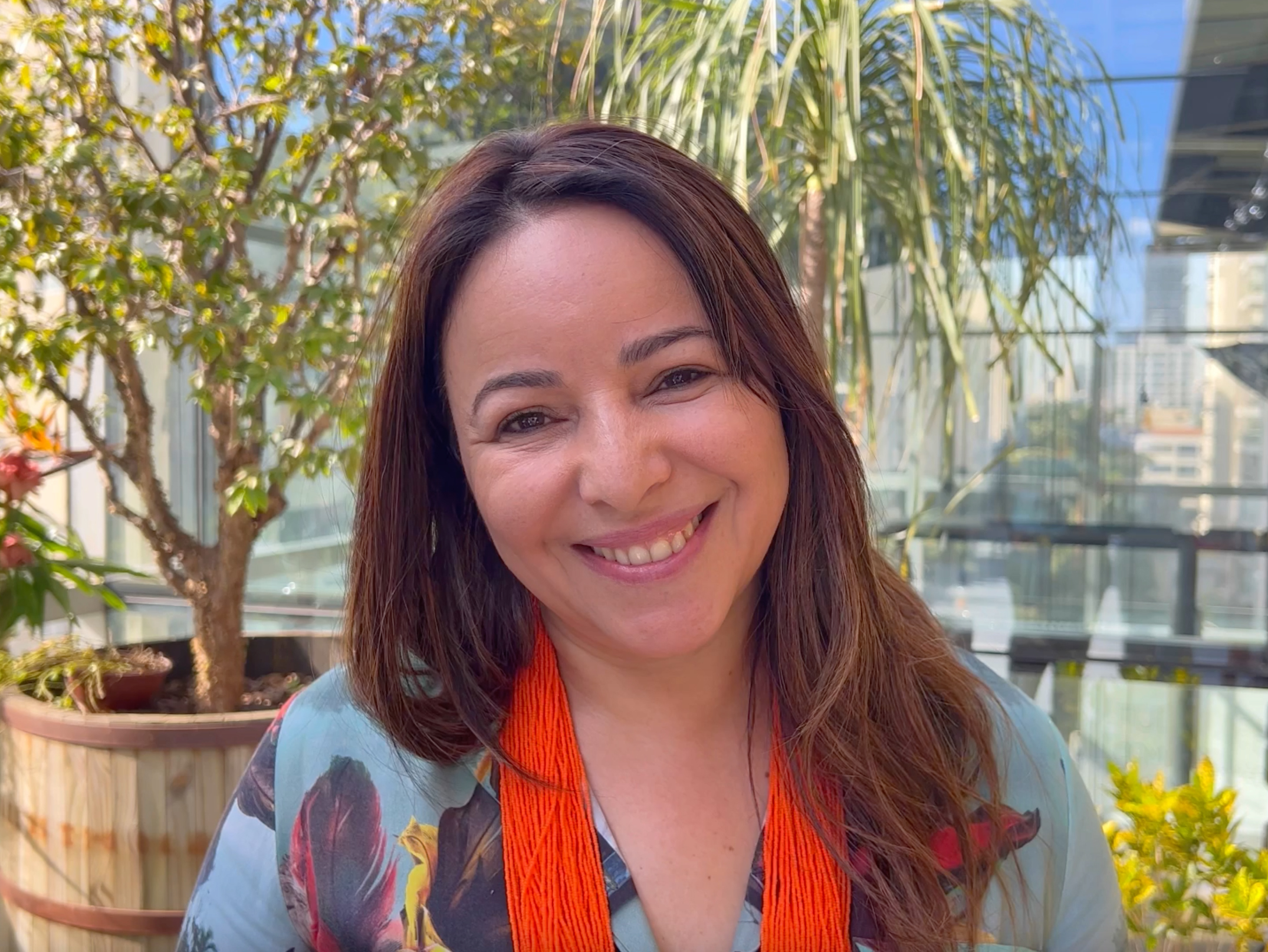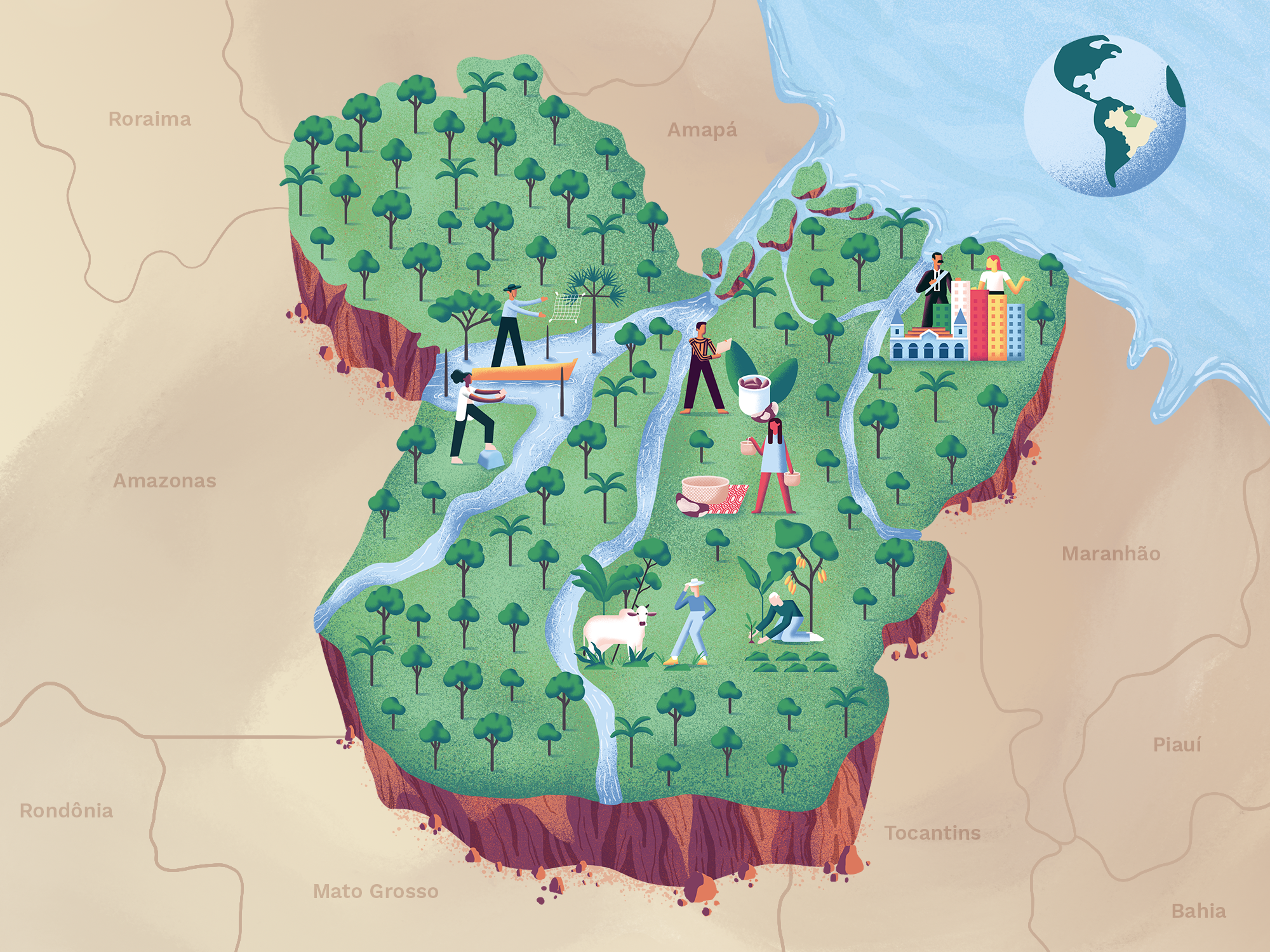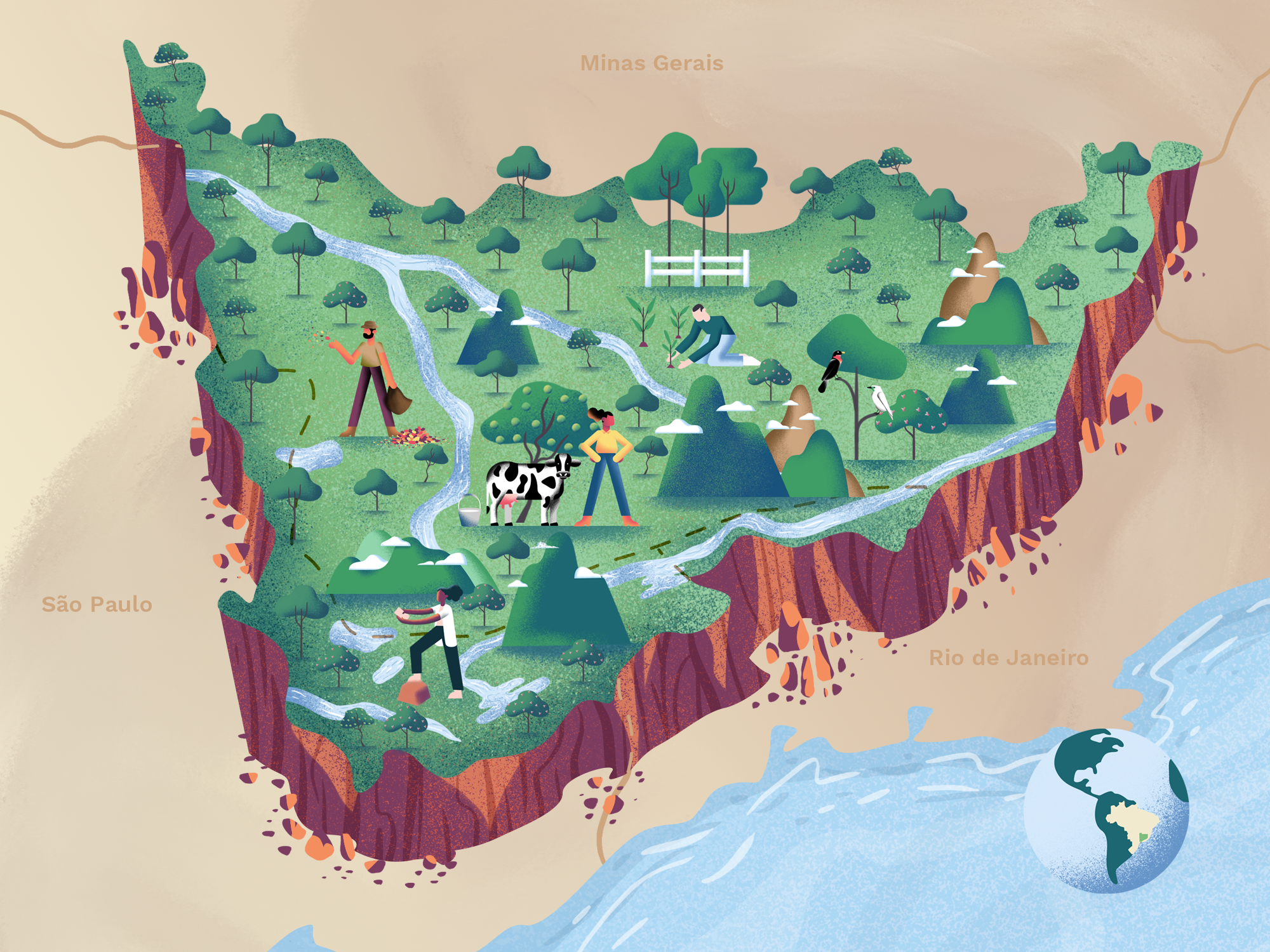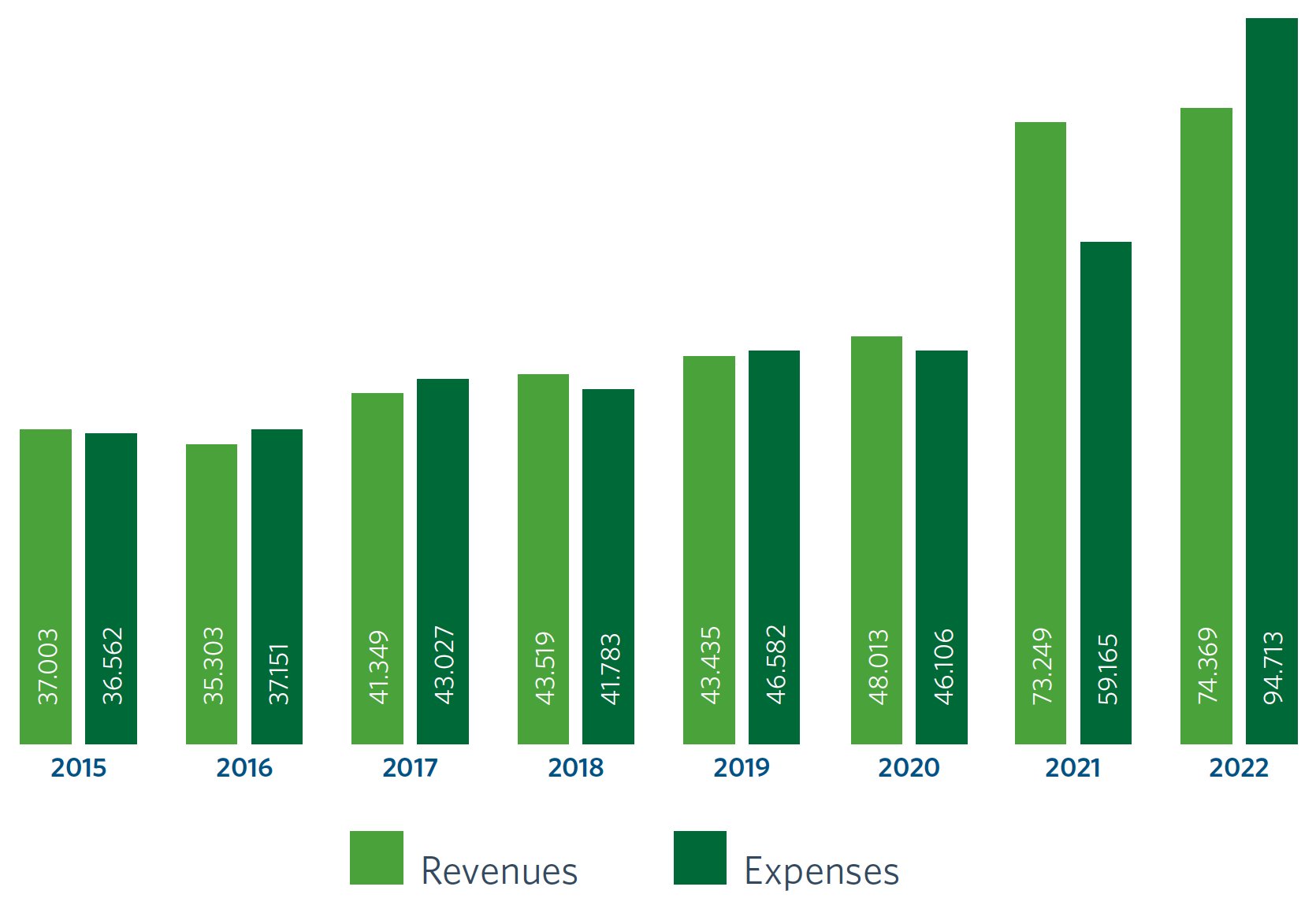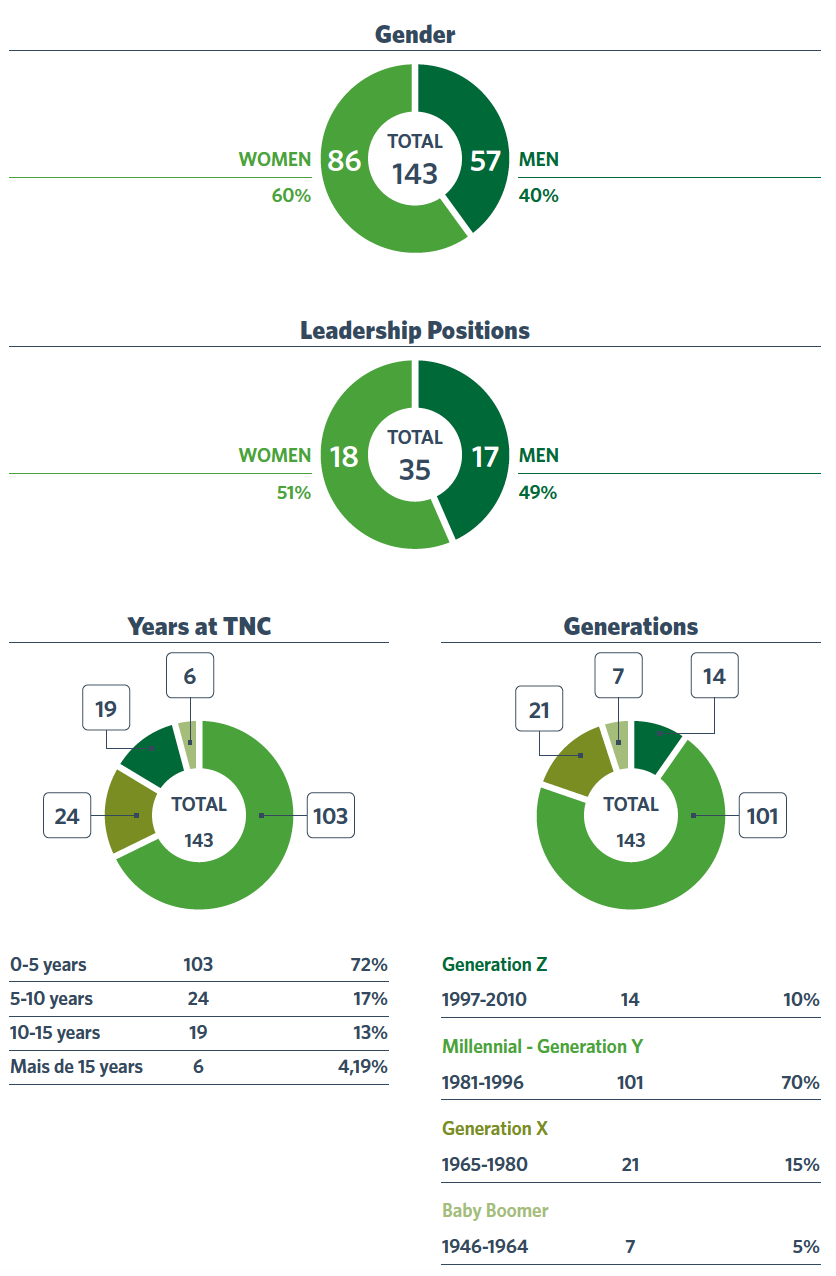
Frineia Rezende
From the Executive Director
The Nature Conservancy (TNC) defined ambitious goals to advance its global conservation work and with the urgency needed to ensure that nature and people thrive together. And as one can imagine, Brazil has a fundamental role in achieving the positive impact needed to revert the climate change and biodiversity crises. TNC Brazil is a signatory of the UN Global Compact, and as such, it annually reaffirms its commitment to contribute to a world that is environmentally and socially just.
We achieved some expressive results in 2022 to meet those impressive goals, and they are already positively impacting peoples’ quality of life and strengthening market models that benefit nature.
In the Amazon, our contributions to accelerating the implementation of agroforests to restore degraded areas are already generating more significant income opportunities for local communities. Our partnerships with large companies in the Araguaia Valley stimulated a large-scale transition to regenerative agriculture and livestock-farming models in the Cerrado. In the Atlantic Forest, our forest-restoration efforts are ever more noticeable. Our partnerships with governments have promoted public-policy developments, and our work with companies has stimulated the carbon market as a form of financing, helping to increase forests’ restoration scale.
TNC Brazil also supported a diversity agenda through employee-led groups, and in 2022, we implemented the L-Pride Brazil, which is focused on protecting LGBTQIA+ rights. The group joins the gender equality-promoting L-WIN, which has helped us celebrate having women occupy 51% of leadership posts at TNC Brazil.
We are delighted to see the evolution of those advancements, which are connected to the clear urgency of climate and biodiversity favoring actions. Those agendas gained even more visibility in 2022 with the realization of the Conferences on Climate (COP 27) and Biodiversity (COP 15).
With each annual report, we reinforce the determination to face the shared challenge of ensuring the material conditions of our existence on the planet. The leading global scientists have already sounded the alarm that we are dangerously near a disaster and that change is still possible. Conservation is our mission, but we know that it is not a solitary journey, which is why we count on the commitment of people like you.
Together, we find a way.
Frineia Rezende
Executive Director, TNC Brazil
The news has frequently shown us what science has been attesting for a long time: We must change how we relate to nature worldwide. In the context of accelerated biodiversity loss and extreme climate events that are increasingly more powerful and frequent and impacting many peoples’ lives, we must act quickly to implement commitments to stop deforestation and accelerate the transition to an inclusive and equitable low-carbon economy.
The Nature Conservancy (TNC) is celebrating 35 years in Brazil, historically working in partnership with various segments of society, engaging key stakeholders to increase the scale of its conservation actions. Our work has a systemic, science-based vision that seeks innovation in local community initiatives. That is why we set bold goals to tackle climate change and protect biodiversity, driving governments, markets, and all of society so that together we can build a future in which people and nature thrive.
TNC Brazil’s 2030 Objectives
-

Sequestration or avoided emissions of 369 millions tons of CO2 annually
Using the power of nature and strength of policy and markets to store carbon, support the renewable energy build-out and reduce emissions.
-

Improved management or avoided impacts on 69 millions conserved hectares
Partnering with communities across the globe to restore & improve management of working lands, support the leadership of Indigenous peoples as land stewards, & conserve critical forests, grasslands and other habitats rich in carbon & biodiversity.
-

Improved management of 178 thousand kilometers of rivers
Promoting innovative solutions and policies that improve the quality and amount of water available in freshwater ecosystems and to communities.
-

Improved and adequate access for 2.1 millions people to decision-making
Partnering with Indigenous peoples and other communities to learn from and support their leadership in stewarding the environment, securing rights to resources, improving economic opportunities and shaping their future.
To reach those local objectives and meet our complex challenges, part of the global The Nature Conservancy’s goals, we are working on some of Brazil's most important biodiversity and carbon storage landscapes via broad partnerships with governments, the private sector, civil society, and communities. Ours is a systemic approach focusing on the persistent problems and their multiple causes affecting those regions. We have invested increasingly in project management tools and a new monitoring and learning strategy capable of flow organizing, measuring results, and improved evaluation of our activities in Brazil. These approaches offer a more precise basis for decision-making that can strengthen initiative and action portfolios that generate larger-scale outcomes to tackle the impact of climate change and biodiversity loss with the needed urgency.
Amazon - Pará State
What happens in the Amazon affects all of us. The carbon stored in the largest tropical forest on earth helps ensure climate stability worldwide; its rivers hold one-fifth of all the water on the planet, and its rich biodiversity is unique, housing one in every ten species. The region is also home to millions, including 350 Indigenous Peoples who have protected their territories for centuries. But the pressure on the forest has caused alarming deforestation rates, sending millions of tons of carbon into the atmosphere, driving biodiversity loss, affecting ecosystem services and the welfare of local and worldwide populations, and putting the region at risk of irreversible degradation.
To tackle those challenges and protect biodiversity, TNC’s work in the region has focused on Pará state, which has 234 million acres of forest cover. Even though preserved forests cover 75 percent of the state and great rivers are plentiful throughout, threats are explicit, and 40 percent of all Amazon deforestation occurred in Pará. That is why we work with governments, companies, Indigenous Peoples, rural producers, and many other partners to strengthen more sustainable production models, drive degraded-area restoration and conservation-unit protection, and stimulate sustainable financing innovation, governance, and conservation public policies.
See how our work in Amazon is aligned with UN Sustainable Development Goals (SDGs)
Highlights of our Work in the Amazon
Click to see the main results of TNC work in the Brazilian Amazon.
Driving Restoration with Agroforests
TNC works with family farmers to increase the restoration scale of degraded areas with agroforests. The Forest Cocoa project has supported restoration efforts in over 600 family-farming properties. It is now entering a new phase of partnerships with the public and private sectors to expand its reach. The Agroforestry and Restoration Accelerator project has engaged family farmers to restore and generate carbon credits as one more income-generation opportunity.
Building Pará’s REDD+ Policy
TNC initiated a project to support creating a Jurisdictional REDD+ System for Pará. The initiative strengthens the state’s climate governance through capacity building, technical support, and an informative and consultative process with many stakeholders. Thus, Pará can receive payment for decreasing deforestation and forest degradation, improving the quality of life for the system’s beneficiaries, and expanding efforts to curb deforestation.
Conservation with Tapajós Communities
The Tapajós Waters project entered a new phase, expanding its activities to 100 communities in the Lower and Medium Tapajós and the Lower Amazon rivers. The work joins traditional fishers’ organizations, community tourism co-ops, craftspeople, and research and education extension institutions. The goal is to strengthen the region’s riparian leadership and natural resources governance, adopt fishing agreements, improve knowledge of the region’s freshwater biodiversity and habitats, and conduct actions targeting their conservation.
A New Territorial Planning Tool
The Sustainable Territories Platform, a governance space that promotes innovative partnerships between Pará government agencies and institutional projects that work directly with rural producers, was launched in 2022 as an associated technological tool of the Amazônia Agora Plan. The aim is to help those initiatives gain scale by directing services and incentives to producers, such as environmental compliance and land tenure, access to credit, and Payment for Environmental Services programs.
Strengthening Bioeconomy
TNC supported the state government in creating the Pará State Bioeconomy Plan, which defined strategic actions to boost the Amazon forest and biodiversity value chains, highlighting the socio-bioeconomy of Indigenous Peoples, Quilombolas, and traditional communities. The process involved different government areas and civil society representatives, including Indigenous Peoples, Quilombolas, traditional communities, researchers, the private sector, and NGOs.
Cerrado - Araguaia
The Cerrado is an essential biome for Brazil’s ecological balance and one of the most critical areas for food production. The region occupies one-fourth of Brazil’s territory and safeguards the most biodiverse savanna in the world, but it also endures land-use practices that threaten its biodiversity. Almost half of the Cerrado (over 207 million acres) has been degraded for agriculture and livestock production, and some of its rivers’ courses were altered due to dam constructions that affect traditional communities’ routines, interrupt the migration of aquatic fauna, and interrupt various ecological processes.
TNC has worked in the region for over 30 years and has carried out specific actions in the Araguaia River basin since 2016. That area has seen 80 percent of its territory altered. We have focused on restoring degraded areas, implementing regenerative agriculture and livestock farming practices, and redirecting expansion due to increased production to already-open areas. We also support the leadership and economic activities of Indigenous Peoples in the region, connecting local efforts with statewide, federal, and global initiatives that reduce deforestation and protect nature.
See how our work in Cerrado is aligned with UN Sustainable Development Goals (SDGs)
Highlights of our Work in the Cerrado
Click to see the main results of TNC work in the Cerrado.
Larger-scale Regenerative Agriculture
With monitored results and ever-improving business models, the Reverte project expanded its impact scale, benefiting more producers. We strengthened the strategy to improve agriculture production associated with environmental soil and water conservation benefits in the Cerrado. In 2022, thirty-three farms participated in the Reverte project, with over 79,000 acres of degraded pastureland under restoration.
Indigenous Peoples
In partnership with the REM (REDD+ Early Movers) in Mato Grosso and seven regional chapters of the Mato Grosso Federation of Indigenous Peoples and Organizations (FEPOIMT in Portuguese), TNC supported the territorial, environmental, and food security management in Araguaia region Indigenous Lands. We also supported implementing the Paresi Tourism Plan with the realization of the first tourist expeditions.
Science and the Carbon Market
The study “Pathways to Leverage Carbon Finance for Deforestation-and-conversion-free Soy and Beef Production in the Brazilian Amazon and Cerrado" evaluated the different sustainable agriculture strategies, the carbon-market benefits, and the monetizing mechanisms to identify the most promising options to leverage finance alternatives for deforestation-curbing actions in the Amazon and Cerrado.
Studying the Araguaia River Basin
The Araguaia is one of the last free-flowing rivers in Latin America, contributing 2.7 percent of its water volume to the Amazon Basin. To understand that landscape more deeply, TNC began developing a blueprint for the Araguaia River Basin that analyzes environmental, ecological, soil-use, economic, and social indicators that will result in an atlas of the basin. The study will point out priority areas for biodiversity conservation, native vegetation restoration, adoption of best agriculture practices, and use of resources by local communities
Partnerships for Regenerative Agriculture
We began supporting biodiversity conservation in agricultural landscapes through a technical consultancy by TNC in a restoration program. In another of our efforts, TNC encourages good agricultural and livestock-farming practices in small and medium-sized rural properties in the Araguaia region. The aim is to promote income diversification and territorial governance, among other benefits, creating the basis for a business model that can bring scale to technical assistance.
Atlantic Forest – Mantiqueira
The Atlantic Forest is one of the most biodiverse areas of the planet. However, due to its history of degradation by human occupation, it has lost more than 90 percent of its native vegetation. The region, which extends over 17 Brazilian states, also concentrates the more significant part of the Brazilian population and around 70 percent of the country’s GDP.
With a critical view of the biome’s importance, TNC focuses its work in the Mantiqueira region via actions that aim at protecting and recovering areas of springs via forest restoration. In the Mantiqueira region alone, the forest restoration potential is over 3.7 million acres divided between São Paulo, Minas Gerais, and Rio de Janeiro states. The objective of the initiatives is to strengthen environmental public policies in the municipalities, ensure the technical capacity for restoration, and support the organizing of local governance. Our efforts also concentrate on finding new financial mechanisms that can make viable forest restoration and spring conservation at scale.
See how our work in Atlantic Forest is aligned with UN Sustainable Development Goals (SDGs)
Highlights of our Work in the Atlantic Forest
Click to see the main results of TNC work in the Atlantic Forest.
Partnerships for Restoration
In 2022, through the Mantiqueira Conservation Project, TNC cooperated with efforts to promote the integration between governments, universities, and civil society to leverage restoration in the Atlantic Forest. As a result, over 100 municipalities in the region have joined the project, and 52 have already approved environmental policies. Additionally, 1,300 people have been trained through field day events and webinars.
Scale and Carbon Market
In keeping with our focus on forest restoration, we have made progress in our partnership with Mercado Livre’s Regenera América Program in developing a carbon market as a financing option for restoration and income opportunity for rural landowners. Following a territorial and environmental study and the signing of the first 59 property owners, over 3,310 acres are already prepared for natural regeneration to begin.
Water and Spring Protection
In Piracaia, São Paulo state, the spring protection and conservation pilot project in the Cantareira dam is already developing activities seeking to restore crucial areas for water production. With a state budget of over $986,000 to protect and restore springs, the project has become a benchmark for similar initiatives in other municipalities serviced by the São Paulo State Water and Waste Management Company and the São Paulo State Public Services Regulatory Agency (SABESP/ARSESP).
UN Restoration Flagship
In the United Nations (UN) Decade on Ecosystem Restoration, we celebrated another win in 2022: recognition by the UN of the work in the Atlantic Forest as one of the most promising and relevant in the world, declared one of the ten World Flagship Restoration Initiatives. TNC is part of the Atlantic Forest Restoration Pact and the Atlantic Forest Trinational Restoration Network, which lead the work.
COP 15 and COP 27
UN Global Conferences on Climate and Biodiversity
The UN Climate Change Conference in Egypt (COP27) brought together representatives of 198 countries in November 2022 which resulted in some good outcomes, such as creating mechanisms to support climate changes’ most vulnerable countries via the “loss and damage” breakthrough agreement. However, there was little definition of important agendas, such as emissions reduction or energy transition.
During the conference, TNC Brazil participated in 17 events and strategic meetings with various partners to present TNC’s work and influence the discussion on more ambitious commitments to tackle climate change. Those activities garnered mentions in 82 pieces and articles in the press.
In December, the UN Conference on Biological Diversity in Canada (COP15) approved the new Global Biodiversity Framework, which brought significant advances in the definition of goals to create an essential collective change to tackle the crisis of biodiversity loss.
TNC Brazil took part in various panels and important side events to present initiatives in the country, help Brazil regain its leading role in biodiversity protection, and further the discussion on Indigenous Peoples and traditional communities’ actual participation in the decision-making spaces. In total, TNC Brazil participated in 24 events, including TNC’s own Brazilian Day, panels, and meeting with partners that led to mentions in over 160 pieces and articles in the press.
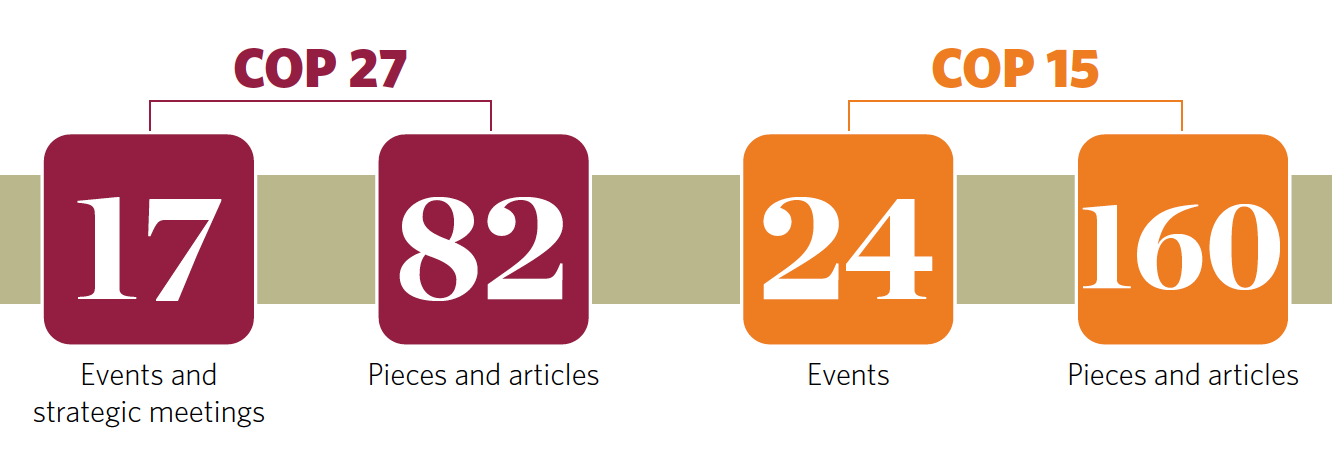
Restaura Brasil
Created in 2018, Restaura Brasil aims to accelerate our biomes’ restoration. The campaign to engage companies and individuals in donating trees helps promote large-scale restoration, one of the most efficient nature-based solutions to mitigating climate change.
In 2022, we restored 1,606 acres (equivalent to 65 soccer fields) by planting 162,394 trees through ten corporate partnerships and contributions from 618 individuals. Together with our many partners, we have planted 265.7 million trees.
You too can make a difference and help make restored areas even larger!
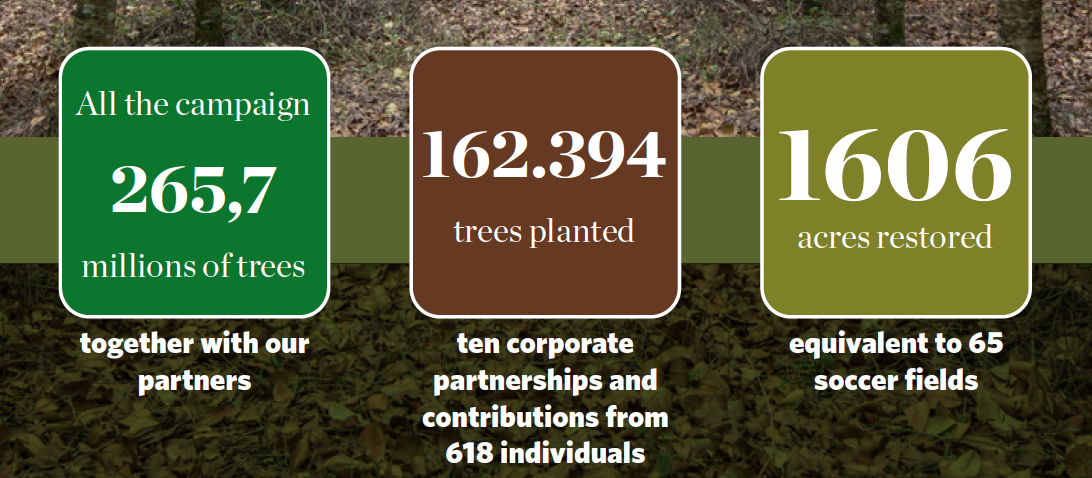
Our Partners
Only a collective movement can bring forest restoration to scale in Brazil. In 2022, Restaura Brasil gained ten new partners contributing to restoring our forests.
Each one of those partners is important in their own way. As a campaign Premium Restorer, TNC signed a partnership agreement with Hyundai Motors Brasil. The partnership aims to bring 1,000,000 new trees and support a capacity-building program of local, regional, and national restoration techniques.
TNC and the UN Environment Program (UNEP) signed an agreement to strengthen restoration initiatives in Brazil in line with the 2021-2030 UN Decade on Ecosystem Restoration goals, of which TNC is a global implementer. TNC aims to unite efforts to give scale to restoration, generating multiple benefits for climate, water protection, and socio-economic development. In 2022, TNC and UNEP held three webinars to increase discussion and disseminate information about the importance of restoration and social mobilization in the climate crisis we are experiencing.

Communication at TNC
In 2022, TNC further strengthened its mission to engage people in conserving the lands and waters on which all life depends, by actively working on its communication in an integrated way through many channels and increasing its presence in the press through studies and specialists in restoration, water, agriculture, regenerative livestock farming, Indigenous Peoples, traditional communities, science, climate, and biodiversity.

Media highlights
-
Mongabay
Mantiqueira Conserver Plan wants to restore 1.5 million hectares of forests. See more
-
Valor
Beyond the visible on water security See more
-
Globo Rural
Brazil's Forest Code: Especialists discuss how to implement the law See more
-
Globo
Águas do Tapajós project discuss river preserving in Amazon. Ver
-
Globo
Seeds colect generating incomes and preserving enviroment See more
-
Valor
A new guide about conversion free soy production in Amazon and Cerrado See more
-
CNN Brasil
Native forest restoration can generate 2.5 millions new jobs until 2030. See more
-
AgroMais
Tech and startups: Sustainable developmet platform in Amazon. See more
-
Revista Galileu
REDD+: Carbon compensation to protect environment See more
Transparency
TNC values define who we are as an organization and how we behave as individuals. They inspire us to do what is right, always guided by our Code of Conduct. We carry out our work with a profound sense of responsibility, diversity, and respect toward people and the community. We seek to use each amount donated to TNC, mindful of our effectiveness via a solid corporate governance structure. Our financial statements are audited and present an unqualified evaluation according to the adequate information provided.
Financial Transactions (in millions of reais)
The financial information represents the primary audited data of the legal entity Instituto de Conservação Ambiental – The Nature Conservancy do Brasil. Results of the conservation work undertaken and presented in this annual activity report may include results of working partnerships between TNC in Brazil and other TNC entities in the Latin American region and globally.
The revenue – from donations, grants, and contributions – as well as projects’ expenses are recorded on a cash basis as determined by the technical accounting standard ITG 2002. Thus, there may be a time gap between the entry and use of resources.
